
International Journal of Unconventional Computing
metrics 2024
Unleashing the Potential of Unconventional Computation
Introduction
The International Journal of Unconventional Computing, published by OLD CITY PUBLISHING INC, is a pivotal platform for innovative research within the field of Computational Science. With a significant focus on unconventional computing methods, this journal aims to explore new paradigms and approaches that challenge traditional computational models. Launched in 2008 and running through 2024, it has established itself as a noteworthy publication in its domain, currently categorized in the Q3 quartile for Computer Science (miscellaneous). While it holds a Scopus rank of #143 out of 232 in General Computer Science, the journal continues to attract submissions from a diverse range of scholars—fostering a rich dialogue on cutting-edge developments. As an essential resource for researchers, students, and professionals eager to delve into pioneering computing techniques, this journal invites the global academic community to contribute and engage with its content. Access options vary, promoting flexibility for readers interested in exploring unconventional methodologies in computing.
Metrics 2024
 0.22
0.22 0.70
0.70 0.50
0.50 21
21Metrics History
Rank 2024
Scopus
IF (Web Of Science)
JCI (Web Of Science)
Quartile History
Similar Journals

International Journal of Networked and Distributed Computing
Advancing the Frontiers of Networked InnovationWelcome to the International Journal of Networked and Distributed Computing, published by SpringerNature, a premier outlet for cutting-edge research in the realms of computer networks and distributed computing systems. Established as an Open Access journal since 2013 and based in the Netherlands, this publication strives to disseminate high-quality, peer-reviewed studies that address the complexities of contemporary computing challenges. With an impact factor that reflects its growing influence—positioned in the Q3 category for both Computer Networks and Communications and Computer Science Applications—this journal serves as a pivotal resource for scholars and practitioners aiming to advance knowledge and innovation in this rapidly evolving field. The journal encompasses diverse topics, from network protocols to distributed algorithms, ensuring that researchers, professionals, and students can find relevant insights and methodologies to inform their work. Join us in exploring the depths of networked and distributed computing, contributing to a collaborative academic environment that shapes the future of technology.
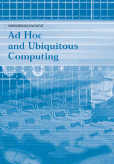
International Journal of Ad Hoc and Ubiquitous Computing
Pioneering Research in Networked SolutionsThe International Journal of Ad Hoc and Ubiquitous Computing, published by InderScience Enterprises Ltd, is a premier platform dedicated to advancing the fields of computer networks, communication systems, hardware, and software architecture. Since its inception in 2005, this journal has served as a critical resource for researchers, professionals, and students aiming to explore the intricate dynamics of ubiquitous computing and ad hoc networks. Though currently not an open-access journal, its scholarly contributions are well-recognized, as evidenced by its rank in the Scopus database, which places it within the lower quartiles of its respective categories. With an increasing focus on innovative solutions in computer science, the journal aims to facilitate knowledge dissemination and encourage interdisciplinary collaborations. Researchers are particularly drawn to the journal for its comprehensive coverage of emerging technologies, making it an invaluable asset in a world increasingly reliant on sophisticated communication infrastructures. As it continues to thrive towards 2024, the journal remains committed to fostering a vibrant academic community.
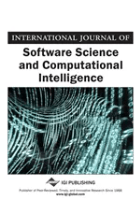
International Journal of Software Science and Computational Intelligence-IJSSCI
Exploring New Dimensions in Software Engineering and AIInternational Journal of Software Science and Computational Intelligence (IJSSCI) is a prominent academic journal published by IGI Global, dedicated to advancing the fields of software science and computational intelligence. With its ISSN 1942-9045 and E-ISSN 1942-9037, IJSSCI offers a platform for researchers, practitioners, and students to disseminate innovative research findings, theoretical advancements, and practical applications in areas such as algorithm development, machine learning, and software engineering. Although the journal currently does not operate under an open access model, its rigorous peer-review process ensures high-quality publications that contribute significantly to the academic discourse. Based in Hershey, PA, IJSSCI is recognized for its commitment to fostering collaboration among professionals in the technology and computer science fields, making it an essential resource for those looking to stay at the forefront of software science advancements.
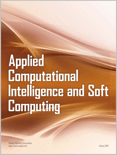
Applied Computational Intelligence and Soft Computing
Innovating Solutions through Computational IntelligenceApplied Computational Intelligence and Soft Computing, published by HINDAWI LTD, is a premier open access journal that has been disseminating critical research since 2009, focusing on the intersection of artificial intelligence and soft computing. With an impressive array of quartile rankings in 2023, including Q2 in Civil and Structural Engineering and Computational Mechanics, this journal has established itself as a significant contributor to the fields of computer science and engineering. Based in Egypt, it plays a vital role in advancing knowledge by providing researchers, professionals, and students with easy access to high-quality studies. The journal’s rigorous peer-review process ensures that only the most impactful research is highlighted, making it an essential resource for those looking to stay abreast of the latest innovations and methodological advancements in applied computational intelligence. Its Scopus rankings further affirm its influence and reputation within the academic community, exemplifying its commitment to facilitating collaboration and fostering intellectual discourse in various scientific domains.
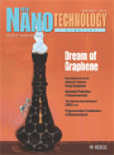
IEEE Nanotechnology Magazine
Bridging Science and Innovation in NanotechIEEE Nanotechnology Magazine is a premier publication dedicated to the dissemination of cutting-edge research and developments in the rapidly evolving fields of nanotechnology, electrical engineering, and mechanical engineering. Published by the esteemed IEEE-Institution of Electrical and Electronics Engineers Inc., this magazine strives to bridge the gap between complex scientific research and practical applications, catering to a diverse audience of researchers, professionals, and students alike. With an impact factor that reflects its growing reputation, the magazine is currently ranked in the Q2 quartile for both Electrical and Electronic Engineering and Mechanical Engineering, and Q3 in Nanoscience and Nanotechnology, showcasing its significant contribution to these fields since its inception in 2007. The publication does not offer open access options, indicating a traditional subscription model that maintains the integrity and quality of its peer-reviewed articles. With its headquarters in the United States, IEEE Nanotechnology Magazine is an essential resource for keeping abreast of innovations that have the potential to transform technology and society as we know it, emphasizing the importance of nanotechnology in contemporary research and application.
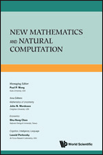
New Mathematics and Natural Computation
Exploring the Fusion of Mathematics and Nature's LogicNew Mathematics and Natural Computation, published by World Scientific Publishing Co Pte Ltd, is a pivotal journal in the realms of applied mathematics and computational theories, catering to a diverse audience of researchers, professionals, and students. With an ISSN of 1793-0057 and E-ISSN 1793-7027, this journal serves as a critical platform for disseminating innovative research and methods that intertwine mathematical theories with natural computation processes. Operating from Singapore, it emphasizes accessibility and collaboration in advancing interdisciplinary knowledge, despite its current Q4 rankings across relevant categories such as Applied Mathematics and Human-Computer Interaction—highlighting the journal’s commitment to growth and improvement in a competitive publishing landscape. As a source of insightful findings and applications in mathematics and computer science, it invites contributors to explore the dynamic intersections between these fields and foster academic dialogue. Researchers aiming to engage with cutting-edge advancements will find this journal instrumental for their work from its inaugural issue in 2012 through its projected publications into 2024.
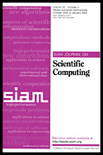
SIAM JOURNAL ON SCIENTIFIC COMPUTING
Advancing the Frontiers of Computational ScienceSIAM Journal on Scientific Computing is a premier journal published by SIAM Publications, focusing on the interdisciplinary domain of scientific computing. With a significant standing in the academic community, this journal boasts a 2023 Q1 ranking in both Applied Mathematics and Computational Mathematics, positioning it among the top-tier publications in these fields. The journal aims to disseminate high-quality research that applies computational methods to solve scientific and engineering problems, fostering advancements in numerical analysis, algorithms, and software development. Researchers and professionals can greatly benefit from the journal's rigorous peer-review process and its reputation for publishing cutting-edge studies. Though it is not an open-access journal, subscribing institutions and individual subscribers gain access to a wealth of knowledge tailored for those seeking to enhance their expertise in scientific computation. With its established history since 1996 and continuing to publish until 2024, the SIAM Journal on Scientific Computing remains an essential resource for students, researchers, and professionals dedicated to pushing the boundaries of this dynamic field.

International Journal of Innovative Computing Information and Control
Empowering research in computing and control.International Journal of Innovative Computing Information and Control, published by ICIC INT, is a prominent platform dedicated to advancing the fields of computational theory, information systems, software engineering, and theoretical computer science. Since its inception in 2007, the journal has garnered attention for its rigorous peer-reviewed research and has established itself within the academic community, attaining a notable Q3 quartile ranking across its categories as of 2023. With an impressive track record of convergence from 2007 to 2024, this journal offers a wealth of insights and innovations for researchers and professionals striving to push the boundaries of technology and computing. While it operates under a subscription model, the journal's commitment to enhancing knowledge in the ever-evolving landscape of computational sciences makes it an essential resource for academics, providing timely articles that address contemporary challenges in the field.
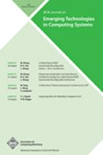
ACM Journal on Emerging Technologies in Computing Systems
Fostering Insights into Next-Gen Computing SystemsACM Journal on Emerging Technologies in Computing Systems, published by the Association for Computing Machinery, stands as a premier platform dedicated to the exploration and discussion of avant-garde advancements in computing systems. With an ISSN of 1550-4832 and an E-ISSN of 1550-4840, this journal has achieved notable recognition, holding a 2023 Q2 ranking in key fields such as Electrical and Electronic Engineering, Hardware and Architecture, Nanoscience and Nanotechnology, and Software. Spanning from 2005 to 2024, it provides a critical forum for researchers, professionals, and students alike to disseminate innovative research and applications that shape the future of technology. Although currently not open access, the journal's commitment to high-quality, peer-reviewed content ensures its relevance and impact, as reflected in its competitive Scopus ranks across various disciplines. Engage with groundbreaking research that propels the frontiers of computational systems in this dynamic academic journal.

Journal of Grid Computing
Advancing the Frontiers of Distributed ComputingThe Journal of Grid Computing, published by Springer, stands as a pivotal resource in the dynamic field of computer science, particularly within the realms of Computer Networks and Communications, Hardware and Architecture, Information Systems, and Software. With an impressive Q1 ranking across these categories in 2023, the journal exemplifies excellence and rigor, catering to a diverse readership from researchers to industry professionals. Established in 2003, this esteemed journal is anchored in the Netherlands and releases cutting-edge research that reflects trends and advancements in grid computing technologies. Researchers can gain insights through its vast contributions, while institutions benefit from its prestigious standing within the SCOPUS framework, boasting high percentile ranks in multiple computer science categories. Though not open access, the journal provides unparalleled access options for institutional subscribers, solidifying its importance as a gateway to innovative discoveries in high-performance distributed computing.